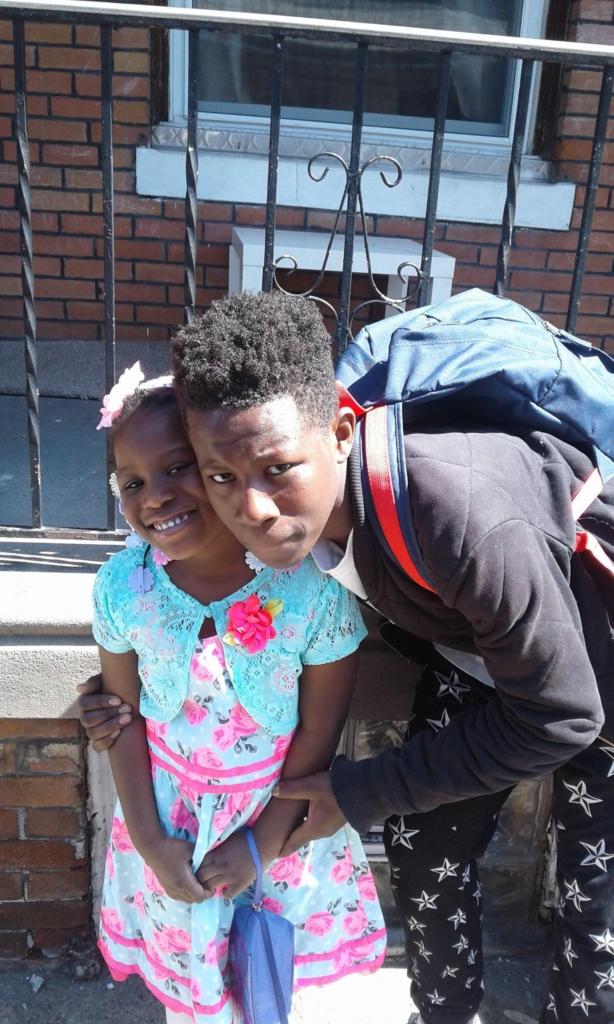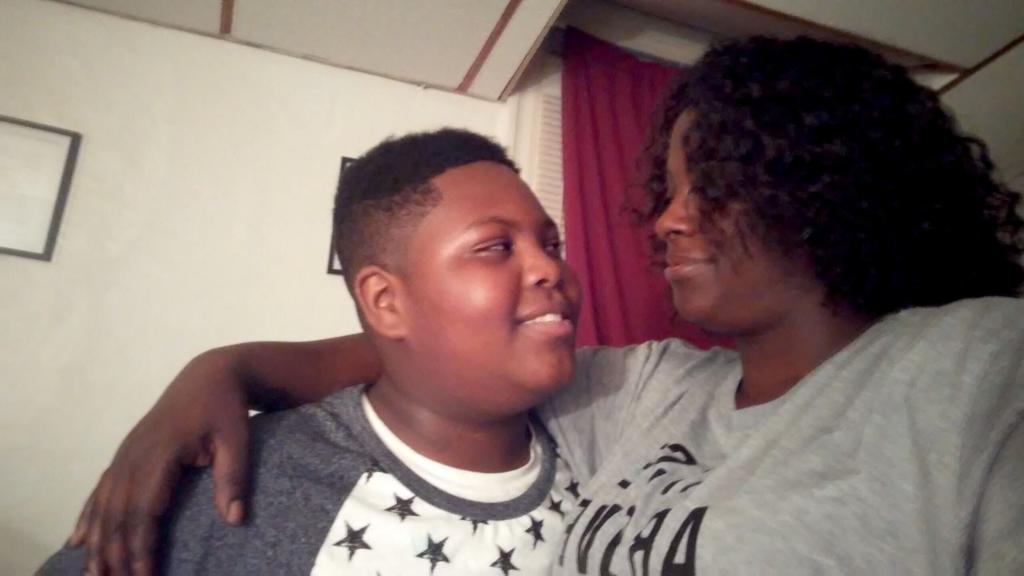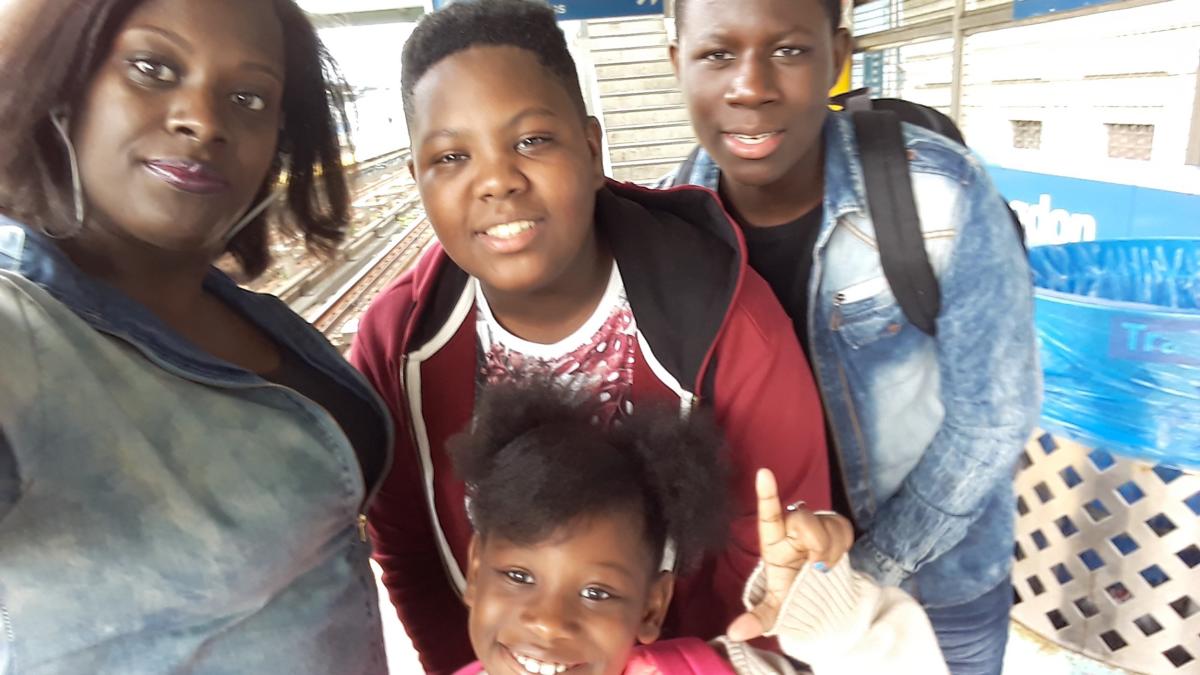Parental substance use is a factor in more than one-third of all foster care placements nationally.
One-third.
This alarming statistic has fueled a public/private partnership in Philadelphia of more than 20 organizations and individuals to develop and implement policies to reduce the impact of the opioid epidemic on child-welfare involved families.
“Since 2017, the number of foster care placements has surged alongside the nation’s rising opioid overdose rates,” said Keli McLoyd, director of the Philadelphia Coalition on Children and Opioids and policy analyst with the Research and Evaluation Group at the Public Health Management Corporation. “A community-driven, cross-sector response is essential to achieve systemic change and improve outcomes for families in Philadelphia.”
The five goals of the coalition are: to implement additional child welfare worker training, launch system-wide opioid educational opportunities, enhance child welfare services, guide cross-system collaboration, and ensure sustainability and momentum. Ultimately, the coalition aims to develop a comprehensive strategy where these public and private systems of care collaborate to prevent opioid misuse among families and to effectively and promptly respond when opioid use is present, McLoyd said.
“The goals of the coalition are to really assist child welfare case managers and child welfare workers and really understanding the depth and the breadth of opioid use disorder on families and really [help] families to receive treatment that they need – while also understanding that folks who work in the child welfare system typically have very high caseloads – have a very high paperwork burden,” McLoyd said. “So we want to be able to assist them without further adding to that burden.”
The coalition is supported by a grant from the U.S. Department of Justice, Office for Victims of Crime, and is convened by Turning Points for Children, a subsidiary of Public Health Management Corporation. Some of the players include the Children’s Crisis Treatment Center, Community Behavioral Health, Community Legal Services, Court Appointed Special Advocates (CASA) of Philadelphia County, the Maternity Care Coalition, and the Philadelphia Department of Public Health.
“I am literally a person [who has] slept on a cardboard box at my lowest. Not just that, I have a record in recovery. I’ve lost my children. And most people will look at that as a negative experience when it comes down to a job.”
April Lee, recovered opioid user and peer parent advocate at Community Legal Services
Even though the coalition hopes to reduce the impact of opioid use on children in the foster care system, substance use in and of itself is not a reason for child-welfare involvement, McLoyd said.
“So somebody should not be involved in the child welfare system simply because mom or dad is suffering from a substance use disorder or an opioid use disorder,” McLoyd said. “What would have to happen is that there would be an event due to the substance use disorder, which we usually see show up as neglect or as medical neglect. And then only as a result of that usually would we come to find out mom or dad is dealing with an opioid use disorder or has a substance use disorder.”
Because there are so many nuances to this process, there is not one way to track families entering the welfare system with opioid use disorder, McLoyd said. But anecdotally, in the field, McLoyd and other experts believe that 60 to 70 percent of child-welfare involved families are dealing with some kind of substance use disorder or opioid use disorder. This is why bringing all the players to the table to create a map of the system and to come up with policies to help child-welfare involved families with opioid use disorder is so important, McLoyd said.

What makes the coalition’s work even more urgent is that COVID-19 has exacerbated problems for child-welfare involved families with opioid use disorder, McLoyd said. People in recovery may not have access to the same support systems they used to have.
“All of our stressors are up,” McLoyd said. “And so I think that just typically even a person who has no sort of substance use disorder is feeling a lot of stress right now. And so I think those stressors are magnified especially for people who are in early recovery and really trying to navigate this on their own.”
When the courts temporarily shut down due to the pandemic, child-welfare involved children suffered even more. “Kids were able to see mom every week and now have not seen her for three months,” McLoyd said.
So, one of the goals of the coalition is to get every child who has been separated from his or her parents trauma care. Another goal of the coalition is to get the funding to replicate the peer support model seen in the recovery community.
April Lee, who has been in recovery for six years and had to fight through the child welfare system to get her three children back, sits on the coalition and is a peer parent advocate for Community Legal Services of Philadelphia. Having that lived experience helps her help families, she said.
“I understand their pain, their trauma fully, that’s going through the child welfare system and other systems,” Lee said. “I am literally a person [who has] slept on a cardboard box at my lowest. Not just that, I have a record in recovery. I’ve lost my children. And most people will look at that as a negative experience when it comes down to a job.”
But Lee sees it as a positive in her role as advocate because she can relate to what child-welfare involved families with opioid use disorder are dealing with.
Lee goes to court with parents, takes calls at midnight “to talk some people down off the edge,” delivers food to families, and generally advocates for whatever their needs might be.
“So it might be parenting classes, sexual trauma classes, anger management. You might need housing…So [in] my position and I pretty much help them make as many connections as possible” and to help parents learn to advocate for themselves, Lee said.
“Recently, it’s been more about missing their children, struggling during the pandemic and not being able to [see] their children in person,” Lee added, noting that due to COVID-19, parental visits halted for a time. “I know personally what it feels like to miss your child.”

Patrice Garvey, a case manager supervisor with Turning Points for Children, oversees case managers and supervisors working with child-welfare involved families to ensure they are following the proper guidelines and that families are receiving the needed resources to work toward reunification or stabilization, she said.
If there are conflicts between case managers and families, her role is to “step in and bridge that gap between them, as well as to encourage the families to advocate for themselves, allow them to be empowered” and to make sure the families are taking the steps required by the system, Garvey said.
For instance, sometimes “the mom is so overwhelmed, she has four children,” Garvey said. “We step in and advocate with the hospital to meet the schedule that will fit mom so she doesn’t have to bring all four children to the doctor…Whatever the goal is, whatever caused the children or the family to come to Department of Human Services, our goal is to ensure that we address that goal and ensure that the family becomes stable and independent.”
When people are dealing with a substance use disorder, “then we do have that pep talk with the families to let them know that this is a serious issue that they have to address,” Garvey said. Turning Points might provide transportation for the individual to treatment, and they discuss how the road to recovery can be long and bumpy.
“It takes a while to get over it, so our goal is we’re really a support for them,” Garvey said. “We’re your partners. We want to work together as a team. So we have to build that rapport with them. We have to respect them, and we have to meet them wherever they are.”
“Somebody should not be involved in the child welfare system simply because mom or dad is suffering from a substance use disorder or an opioid use disorder.”
Keli McLoyd, director of the Philadelphia Coalition on Children and Opioids
One of her hopes for the coalition is that it addresses the need for more low-cost or no-cost services for families, Garvey said. Lee said she hopes the coalition will get funding for more peer advocates like herself to help families navigate the system.
“If we really want to build a village, if we really want to build a community, if we really want to say that ‘Hey, we love you. We care about you. We’re concerned with your child’s well-being. We’re concerned about your family’s well-being,’” Lee said, “then put some people next to them that’s going to walk with them.”

This story is a part of the Philadelphia Weekly Behind the Frontlines series, which aims to look at the lives of other essential workers forgotten in the midst of the COVID-19 pandemic. Behind the Frontlines is delivered in partnership with WHYY and Broke in Philly, a collaborative reporting project among 23 news organizations, focused on Philadelphia’s push towards economic justice. Read more of our reporting at brokeinphilly.org.





